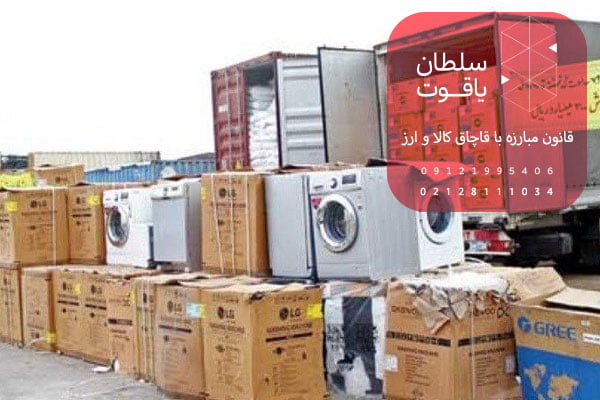Regulation on illegal trade of goods and currency
One of the most important things in commerce that should be considered is the regulation on illegal trade of goods and currency. When the merchants are familiar with these regulations they would no longer violate the rules in the exportation and importation of goods and they will be able to the clearance of goods safely. The merchants who are not familiar with the regulations in this field can use the aid experts such as brokers or commission agents so that they will meet no difficulties during completing the stages for the clearance of goods.
The act about illegal trade of goods and currency is of 10 chapters. The first chapter is dedicated to the definitions and instances. In the second chapter, the prevention of illegal trade of goods is explained. The third chapter deals with illegal trade of authorized, conditional, subsidized and foreign currency permitted goods. The fourth chapter provides an explanation for the illegal trade of prohibited goods and in the fifth chapter, you will encounter regulations against organized and professional contrabanding. In Chapter 6, you will learn about related crimes in this regard. Chapter 7 is about the rules of discovery devices. Chapter 8 describes the competent authorities dealing with the crime of contrabanding. The ninth chapter is dedicated to the contrabands and the next chapter presents the general rules on contrabanding, which will be discussed in this article later.
What does contrabanding of goods and currency mean in general?
Contrabanding of goods and currency refers to any act or omission which results in violation in the legal procedures related to the entry and exit of goods and currency and it is considered as contrabanding according to this law or other laws which is punishable. According to this law, contrabands will be dealt with in any part of the country, such as entry points or places of supply of goods in domestic markets, at the time of discovery.
The regulation about contrabanding of goods and currency include following:
Not returning the declared goods for temporary exit, adding goods to the transit or transshipment goods, replacement, reduction and increase of these goods. Declaration of imported goods with Iranian names and trademarks without the permission of the relevant authorities with fraudulent intent, supply of imported goods without the product ID and tracking ID at the retail level and any departure of goods from the country contrary to legal procedures and conditions in the competent authorities.
Who is in charge of codifying regulations to confront with contrabanding of goods and currency?
Policies, plans, coordination and oversight in the areas of executive affairs and laws on the prevention of contrabanding of goods and currency are developed by the Central Headquarters for Control of Contrabanding of Goods and Currency. This organ consists of a number of ministers such as minister of justice and information, economy and finance, foreign affairs, as well as all ministers active in the fields of industry, mining and trade, ministers of roads and urban development and agricultur, oil, and the minister of health and education medicine or their related deputies. In the meantime, two representatives will be elected from the members of the Economic and Judicial and Legal Commissions of the Islamic Consultative Assembly and the heads of government organizations.
Among the active workers in collecting and selling real estate of the Radio and Television of the Islamic Republic of Iran and the Inspector General of the country, and the General Directorate of the Armed Forces, the Command of the Police, the Governors of the Central Bank and Customs of the Islamic Republic and the National Institute of Standards and Industrial Research, some workers will be selected.
The head of the Iranian Chamber of Commerce, Agricultural Industries and Mines, and the Judiciary’s Deputy for Social Affairs and Prevention, the President of the country or his representative, and the plenipotentiary representatives of the Judiciary are one of the regular members in planning these policies and laws. Decisions made at this meeting, will be binding on all government agencies when they are signed by the President or his special representative at this meeting. And other relevant agencies in this regard, including the judiciary, the armed forces, law enforcement and military forces, the Radio and Television Organization and all agencies who are members of this organ are supposed to cooperate with the government in this regard.

